
Digital museums are collections of digitally recorded images, sound files, text documents, and other data of historical, scientific, or cultural interest that are accessed through electronic media.
Digital museums utilise computer and network techniques to provide a rich experience. Compared with traditional museums, digital museums have some unique characteristics, such as storage digitisation, networking capabilities, and resource sharing.
The world's most visited digital art museum, TeamLab's Borderless, is not just a museum but an all-encompassing experience. Powered by lights, sounds, and projections, it gifts visitors with fully digital, immersive explorations of art and technology.
Borderless is a brick-and-mortar museum in Tokyo. It is the first institution in the world to be devoted to digital artworks and one where online sharing takes centre stage.
The digital art museum was the brainchild of TeamLab, an international art collective that has been creating artwork using digital technology since 2001. TeamLab has also opened other permanent spaces in Shanghai and Singapore. Its members have backgrounds in a wide range of disciplines, including computer programming, CG animation, engineering, mathematics, and architecture.
Electronics behind TeamLab's digital art museum
This three-dimensional, 10,000-square-metre space uses 520 computers and 470 projectors to create an experience that stimulates all five senses. The museum is divided into five sections: Borderless World, Athletics Forest, Future Park, Forest of Lamps, and the En Tea House. Overall, there are 50 exhibits.
This story is from the September 2024 edition of Electronics For You.
Start your 7-day Magzter GOLD free trial to access thousands of curated premium stories, and 9,000+ magazines and newspapers.
Already a subscriber ? Sign In
This story is from the September 2024 edition of Electronics For You.
Start your 7-day Magzter GOLD free trial to access thousands of curated premium stories, and 9,000+ magazines and newspapers.
Already a subscriber? Sign In
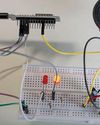
ESP32-Powered AUDIO-VISUAL SIREN
This sound alternator is designed to simulate the effects of a police siren, combining sound and light to create a dynamic audio-visual experience.
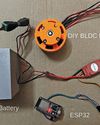
BLDC MOTOR With Web-Based Speed Control Using ESP32
Integrating wireless control into brushless direct current (BLDC) motor systems opens up exciting possibilities for applications such as remote-controlled cars, robots, and other innovative systems.
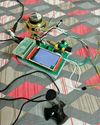
Pi Zero Portable BILINGUAL TRANSLATOR
This system is designed as a bilingual translator, leveraging the gTTS library to support multiple Indian languages, including English (en), Bengali (bn), Gujarati (gu), Hindi (hi), Kannada (kn), Malayalam (ml), Marathi (mr), Tamil (ta), Telugu (te), and Urdu (ur).
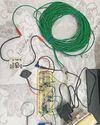
Op-Amp-Based VEHICLE THEFT DETECTOR
A simple, low-cost device can effectively alert homeowners or occupants if a parked vehicle is moved or tampered with.
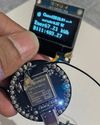
loT SMART METER With Dashboard
Energy meters in homes track electricity usage, enabling accurate billing by governments and providers.

Choose The Right Cloud Platform For Implementing loT PROTOCOLS
Working with loT protocols like MQTT, AMQP, and CoAP on cloud platforms is essential for developing scalable and efficient lol applications. The choice of the programming platform will depend on factors like project requirements, existing skills, and target devices. Leveraging the appropriate libraries and cloud services can enable seamless integration of lol devices with cloud-based applications.

Why TMR SENSORS Lead Next-Generation Design
TMR sensors are gaining traction in industries needing precision and power efficiency. What makes them the go-to choice for modern designs?
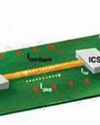
DESIGNING PCBs For EMI Management
Electromagnetic interference can derail your PCB’s performance. EMI management is not just a technical necessity but a hallmark of exceptional PCB design.

CUTTING COSTS, NOT CORNERS: Building Large Scale Applications With Open Source Software
Here are some strategies and best practices for leveraging open source to create enterprise-grade web and mobile applications without sacrificing quality or functionality.

"We Are One Of India's Very Few State Bodies To Manage The Entire Lifecycle Of The Electronics EcosystemFrom Approvals To Subsidies."
What is Gujarat State Electronics Mission GSEM), and how is it attracting major investments in electronics manufacturing, particularly semiconductor manufacturing, to Gujarat? To delve deeper, Electronics For You’s Nijhum Rudra spoke with Manish Gurwani, the head of GSEM. Here is what he revealed...